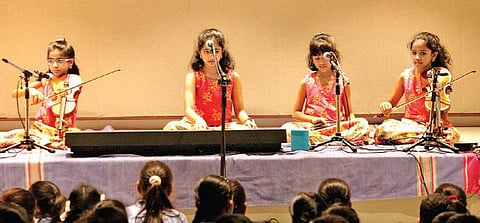

BENGALURU: If I was given a cookie every time someone asked me if I thought classical music was dying, I’d be swimming in a (rapidly emptying) pool of cookies. This question gets asked in many ways, from the not-so-subtle, “This younger generation doesn’t want to learn our music, no?” to the very direct “Don’t you agree that classical music is vanishing?”, and my answer is always the same. I think classical music is alive and well, and will continue to thrive. In fact, if anything, I think there is more interest in Indian classical music among children now than there was a decade or two ago.
The perception that classical music is so intricate that it can only be taught to and appreciated by children from “musical families” (how one would define that, I don’t know), is wrong. The perception that classical music is boring and not something that “today’s children” or “the modern generation” can appreciate is wrong too. Classical music has always been something that can be appreciated by children, but, as with other subjects, the most important thing to develop and sustain a child’s interest, is methodology.
Although Indian classical music training depends heavily on learning by ear, I think many teachers have been extremely adaptive, creating situations that work for their students. When I was a kid, our teacher would allow us to record lessons on tape, so we could play them back at home and practise. After that, people would share mp3 recordings. Then it became WhatsApp voice notes. Even pre lockdown, most teachers had at least a handful of Skype students. And now? Classical music learning has gone a step further with self-paced courses on state-of-the-art learning management systems available to students around the world.
One thing that is extremely heartening to us at SaPa is that a majority of our students are first-generation classical music learners, which shows that, at least in the case of the students we work with, classical music isn’t just for those for families that have learnt music. My brother Ambi’s demographic at classical concerts definitely skews in favour of younger audiences who insist that he makes classical music cool (as his sister, I will never admit that he is cool).
The beautiful thing to me, is that classical music didn’t have to change for any of this to happen. The music we enjoy and appreciate today, is almost identical to the music that Thyagaraja sang in temples hundreds of years ago. (The author is a singer, songwriter, educator and social entrepreneur)